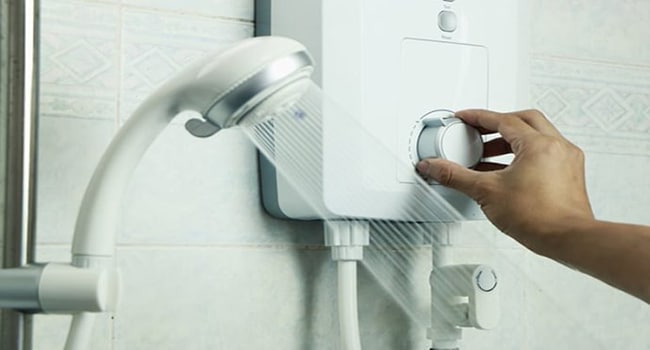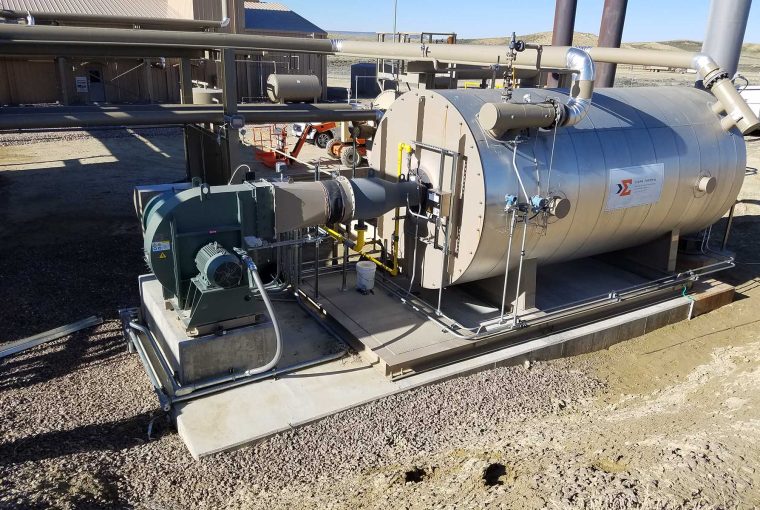There are many appliances that we use in our homes that help in our tasks and chores. Among these, water heaters have come a long way from their primitive forms. Traditionally, they were tanks filled with water with a heat source. In that tank, water was heated and reheated so that whenever you need hot water, it is there for you.
The next generation of water heaters is tankless, meaning there is no hold-up for water. Rather, a high-powered heat source warms water as it goes. Although the heat source is much more potent than its traditional counterpart, you will find that a tankless water heater is fairly energy-efficient. According to research, there is a positive difference of 22% energy consumption between the two water heaters.
All praises aside, there is a catch when it comes to electric tankless water heaters!
In this post, we will go through some of the pros and cons of electric tankless water heater. This will help you in making the right choice if you need to buy your first one or looking for a replacement.
Electric Tankless Water Heater Pros and Cons:
Pros:
First, we will go through the pros of an electric tankless water heater.
Instant Warm Water
The idea behind a tankless water heater is brilliant in that it warms up water as it is flushed from the pipes to the faucet. So, the premise is effective to have an unending supply of hot water without having a bulky tank.
Long Life
Another quality that makes a tankless water heater distinct from a conventional one is its longer lifespan. For instance, estimates suggest that a standard water heater tank can last about a decade. On the other hand, its tankless countless counterpart can work for two decades before it gives up for good.
So, simple math says that going for a tankless water heater can save you from spending money every ten years for hot water in your house.
Energy-Efficient
There is no denying that tankless models are expensive against their counterparts, but they make up for that extra down payment in the shape of low monthly bills. The savings may seem nominal in months but they add up to hundreds of dollars annually.
Space-Efficient
This is another area where tankless models shine. If you go for a water heater tank, you need a dedicated space in your house to place that reservoir. Contrary to this, tankless models can be stuck to walls near the water source and they can deliver warm water across the house.
For condos and urban flats, this should always be welcomed.
No Standby Loss
Conventional water heater tanks keep water in the reserve and reheat it as the demand goes up. This raises energy expense each time it heats up that water. On the other hand, a tankless heater only fires up when water is needed. So, there is no standby loss when it comes to tankless water heaters.
Cons
Now that all praises and qualities of tankless water heaters are out of the way, it is time to explore their darker sides.
Inconsistent Temperatures
Surveys show that one of the primary complaints from consumers is that these tankless models are inconsistent in keeping the steady temperature of incoming water. You can imagine the agony if you are taking a hot shower and suddenly water gets too hot for your skin.
They have a hard time performing their tasks when;
- Multiple faucets are open
- If a faucet is slightly open
Expensive
Although it makes up for the bulky down payment at the time of purchase, it is worth mentioning that a significant difference exists. For instance, if a standard water heater tank comes at $500, you will get its tankless counterpart around $1000.
Also, you need to pay more for installation and other parts for a tankless.
Limited Supply
When we compare the warm water supply between the two, tankless comes short on this front. It offers a steady stream which is even enough for a person taking a shower since it heats up gallons of water in a minute. The problem starts when multiple faucets run simultaneously on an electric tankless water heater.
So, if one is doing laundry, one is in the shower, and another is cleaning the dishes, it will be hard for all of them to have enough water to carry out their tasks. In the same scenario, a traditional water heater would have no problem at all.
Additional Equipment
When you decide to go for an electric tankless water heater, you often need additional equipment to make it work properly. A water softener is a common example. Buying can add to the initial price of the unit as well as takes up space. If that is the case, this may end up taking more space than a traditional water heater.
These were some of the pros and cons of electric tankless water heater that can help you in making the right purchase. With that in mind, it will be a smart investment to go with an electric tankless water heater. It is energy-efficient, space-saving, and eco-friendly. This is what makes it a great choice!



